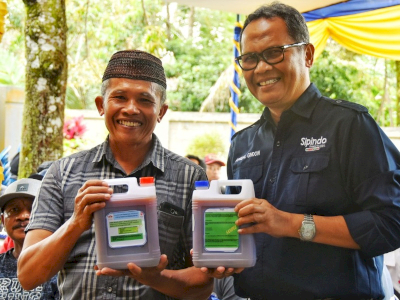
Observing the ongoing economic and geopolitical crisis around the world that seems to have no end, many sectors are suffering losses and have to adapt to difficult conditions such as rising prices and scarcity of commodity raw materials, especially chemical fertilizers. Indonesia, which heavily relies on agricultural commodities, is certainly affected by the scarcity and price increase of chemical fertilizers. As a result, most farmers, who are at the forefront of the agricultural sector, experience a decrease in the quality and quantity of their harvests due to this situation. Therefore, this difficult situation becomes an appropriate momentum to find alternatives that farmers can do to overcome the scarcity and price increase of fertilizers.
Based on the Sustainable Agriculture model, by utilizing land, water, and plant resources to be sustainable, economical, and profitable, EWINDO collaborates with BRIN through the project of making Bioorganic Fertilizer Reactor to initiate positive changes in overcoming the scarcity and expensive cost of fertilizers today. Bioorganic Fertilizer is not a substitute for chemical fertilizers but a complement to them. By utilizing good microbes to help absorb nutrients even better. This event was held in Jambewangi Village, Sempu District, symbolically by Deputy Managing Director of EWINDO, Afrizal Gindow, and accompanied by Director of Seed Operations of Ewindo, Joko Sareh Utomo. In this event, participating farmers had the opportunity to see and try making bioorganic fertilizers on location.
Based on the results obtained from other bioorganic fertilizer reactor locations, it was found that its use could increase chili production up to 11 tons per hectare (ha), larger than the previous production of 9 tons per ha. It is expected that in 2023, bioorganic fertilizer reactors will increase in various other locations in Indonesia that require them, and the presence of these reactors will become one of the centers for agricultural technology transfer and innovation.